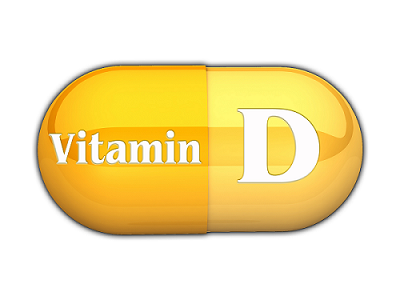
 If your recent vitamin D profile suggested that you are deficient, the first thing you should do is talk to your doctor. The normal range in a healthy individual is 20 ng/mL to 50 ng/mL, if the level falls below 12 ng/mL, it is called D deficiency. Your doctor will examine your report and prescribe vitamin-D supplements that can help get your vitamin levels up. But, did you know you can get your levels up by adding more Vitamin D Rich foods such as fatty fish or fortified dairy products to your diet?
If your recent vitamin D profile suggested that you are deficient, the first thing you should do is talk to your doctor. The normal range in a healthy individual is 20 ng/mL to 50 ng/mL, if the level falls below 12 ng/mL, it is called D deficiency. Your doctor will examine your report and prescribe vitamin-D supplements that can help get your vitamin levels up. But, did you know you can get your levels up by adding more Vitamin D Rich foods such as fatty fish or fortified dairy products to your diet?
Importance Of Vitamin D?
Vitamin D or “calciferol” is a fat-soluble vitamin that the human body produces after sunlight exposure. Many people show symptoms of vitamin deficiency because they spend very little time outdoors, wear sunblock when outside, and eat foods low in vitamin D.
If you don’t get enough vitamin, it affects the way you feel and perform:
- Increases bone health
- Improves lower body strength
- Prevents falls
- Increases muscle mass and strength
- Builds strength in your legs
- Protects against certain diseases
If you notice any of the following symptoms, get your vitamin D profile done to rule out deficiency:
- Bone and back pain
- Fatigue and tiredness
- Being sick and getting infections often
- Depression
- Impaired wound healing
- Bone loss
- Hair loss
- Muscle pain
Can You Get Vitamin D From Food?
Yes. The recommended daily value of vitamin D per day from foods is 800 IU (20 µg). If you don’t get sufficient sunlight, your vitamin intake should be around 1,000 IU (25 µg) per day.
Some food sources are fatty fish (salmon, sardines, and tuna), egg yolks, red meat, and liver. Mushrooms, certain cereals, cheese, and other fortified foods are also rich in vitamin-D.
How to get Vitamin D from your vegetarian or vegan diet?
For vegetarians and vegans, although there are abundant sources of vitamin-D-rich foods they eat, the absorption is not the same as present in non-vegetarian and animal produce.
Sources of vitamin D in vegetarian foods
- Mushroom
- Cheese
- Orange juice
- Yogurt
- Tofu
- Soy
- Certain nuts and seeds
- Margarine
Sources of vitamin D in vegan foods
- Almond/coconut/soy milk
- Vegan tofu and cheese
- Fortified orange juice
Spending time in the sun is the best way to get your daily dose of the sunshine vitamin. However, getting sufficient sun exposure is not always possible, but the shortfall can be met by eating these vitamin-D-rich foods.